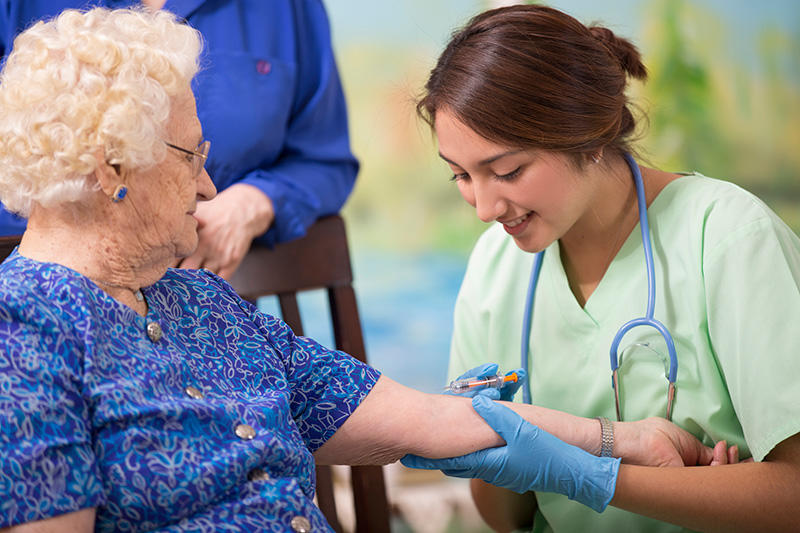Featured
Tags
Share

Military base school nurse and 3-Year Bachelor of Science in Nursing graduate Jennifer Torrecillas rarely experiences a dull moment on the job. One minute she could be filling out an Emergency Care Plan for a new fifth grade student and the next she could be assessing a rambunctious third grader for broken bones after a collision on the playground. From administrative duties to administering hundreds of health screenings a year, Jennifer shares what it’s really like to work as a school nurse.
How did you get into school nursing?
I am a military spouse and after graduating from Chamberlain we moved to Japan. The jobs available on our base are limited for nurses, so my goal was to try and volunteer. I set out to volunteer through the Red Cross and applied to work as a substitute at my children’s schools. Through substituting, the principal at the elementary school learned I was a nurse and informed me that he was trying to open a full time position for a school nurse. Once the position became available, the principal approached me again and asked me to submit my application.
What’s a typical day like for you?
I usually see a range of between 10 - 20 students daily. A typical day involves sending out immunization update letters and assessing a variation of student ailments from stomach issues to broken bones and concussions. When a new student arrives, I make sure that their immunizations are put in our system, update their health profile and study trip forms and make sure the cafeteria is aware of any allergies they may have.
My days vary and my schedule depends on the time of year. At the beginning of the school year it tends to be very busy with updating medications and immunization records, inputting new students into the system and filling out individual Emergency Care Plans (ECPs). October and November are busy months as well. At this time, flu shots are available and the Department of Defense Education Activity (DoDEA) policy states all enrolled students must have their flu immunization in order to maintain enrollment. I also have to do health screenings for over 200 students.
Toward the end of the year, I coordinate a health program for our fifth grade students on learning more about their bodies. At the end of the year we have a higher rate of students moving so I make sure their paperwork is up to date and ready for them.
What’s your favorite thing about this specialty?
I enjoy working with and having a relationship with the students. Giving them the opportunity to not be afraid of the school nurse is huge for a lot of them, especially the younger kids who think I am going to give them shots. Teaching them about nutrition and healthy habits, and simply high-fiving them while walking through the hallways is very rewarding. I truly love to see them smile in the hallways and genuinely enjoy being at school.
I also adore the staff; the people who I work with are amazing and truly care about the students and their well-being. We all have an amazing relationship inside and outside of the school.
What words of advice would you give someone who is considering to pursue this specialty?
It’s important to keep a smile on your face and to remember that every child you see needs your full attention. Being able to assess each child with care and detail is incredibly important. Keeping yourself organized and updated on the school districts’ policies is critical to your success. Communication between the local medical facility, the staff of the school and administration is also key. Staying relevant in current pediatric trends and being able to properly collaborate with peers is also important.
What are some challenges within this specialty?
Probably the most challenging for me is the fact that I don’t get to keep up with certain bedside skills.
What would make someone a good fit for this specialty?
Someone who has excellent communication skills, patience and a passion to work with children would be a wonderful fit. One also needs to understand the administrative and clinical side, and to be able to properly balance the two.
I believe a lot of my job is personality. Being able to be a team player is key. Showing my students, staff and parents that my sole purpose is to make sure that the school stays healthy and safe will always be my first priority.
Whether you have a passion for educating children on healthy habits, teaching them that seeing a medical professional doesn’t have to be “scary” or enjoy seeing a high volume of patients per day, school nursing might be the right fit for you.
Are you interested in advancing your education? Request more information about Chamberlain's programs.
By Kari Lawrence
More from Careers
Request More Information
To receive the Chamberlain University Program Guide, including associated career paths, please select a program of study.






